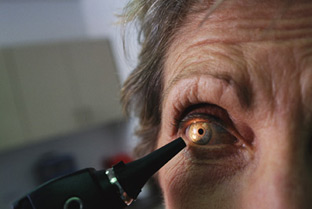 the formation of cataracts, a common problem faced by the elderly. At the time, I also told you the amount of antioxidants — specifically the lack of them — also contributed greatly to cataracts.
the formation of cataracts, a common problem faced by the elderly. At the time, I also told you the amount of antioxidants — specifically the lack of them — also contributed greatly to cataracts.
Researchers have discovered an antioxidant-rich diet of fruits and vegetables may prevent the breakdown of a crucial mechanism, called the ubiquitin-proteasome pathway, that clears damaged proteins away from eye lenses. When too many of these damaged proteins accumulate, cataracts can grow on the eye.
This ubiquitin-proteasome pathway helps balance a healthy concentration of proteins within cells. Ubiquitin is a protein that identifies damaged proteins ripe for removal and attaches itself to them. These “conjugated” proteins then latch onto proteasomes (protein-degrading enzymes) finish the job of clearing away vision-sapping debris.
Because free radicals attack ubiquitin and other healthy proteins in the eye, the antioxidants contained in vitamins C and E can play an important role in protecting that pathway.
A good source of vitamins C and E, as well as beta carotene:
USDA Agricultural Research Service August 2, 2005
USDA Agricultural Research Service August 2005Free Full Text Article
